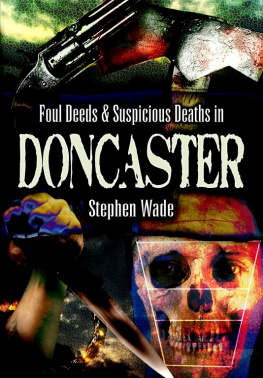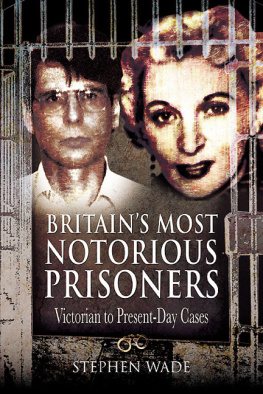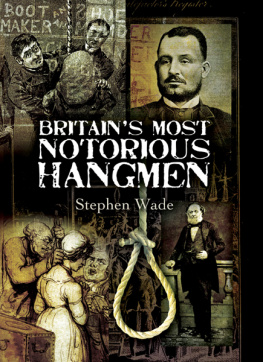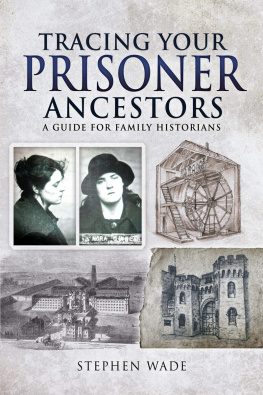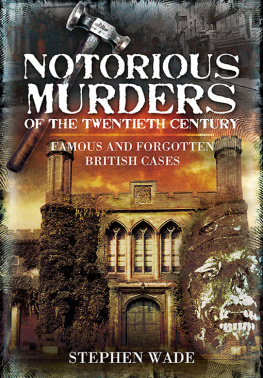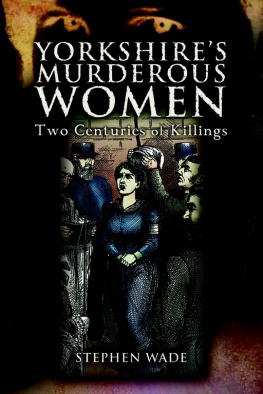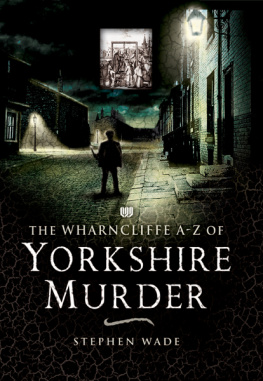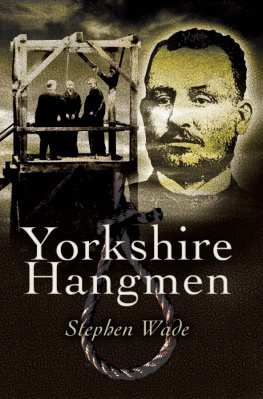Your Towns and Cities in the Great War
Harrogate and Ripon in the Great War
Your Towns and Cities in the Great War
Harrogate and Ripon in the Great War
Stephen Wade
First published in Great Britain in 2016 by
PEN & SWORD MILITARY
an imprint of
Pen and Sword Books Ltd
47 Church Street
Barnsley
South Yorkshire S70 2AS
Copyright Stephen Wade, 2016
ISBN 978 1 47385 555 7
eISBN 978 1 47385 556 4
Mobi ISBN 978 1 47385 557 1
The right of Stephen Wade to be identified as the author of this work has been asserted by him in accordance with the Copyright, Designs and Patents Act 1988.
A CIP record for this book is available from the British Library
All rights reserved. No part of this book may be reproduced or transmitted in any form or by any means, electronic or mechanical including photocopying, recording or by any information storage and retrieval system, without permission from the Publisher in writing.
Pen & Sword Books Ltd incorporates the imprints of
Pen & Sword Archaeology, Atlas, Aviation, Battleground, Discovery, Family History, History, Maritime, Military, Naval, Politics, Railways, Select, Social History, Transport, True Crime, Claymore Press, Frontline Books, Leo Cooper, Praetorian Press, Remember When, Seaforth Publishing and Wharncliffe.
For a complete list of Pen and Sword titles please contact
Pen and Sword Books Limited
47 Church Street, Barnsley, South Yorkshire, S70 2AS, England
E-mail:
Website: www.pen-and-sword.co.uk
Acknowledgements
Many people have helped in the research for this book. David Knight, archivist at Stonyhurst College, helped with the De Trafford material; Greta Hills was very much my Ripon researcher; at Harrogate, Nicola Baxter and Sheila Asante at the Pump Room Museum helped with the use of materials from their exhibition on Harrogate at War. Also, Linne Matthews and Roni Wilkinson were a great support. Anyone writing on Harrogate has a debt of gratitude to Malcolm Neesam, who is very much the doyen of historians on that town. Other experts provided commentary and footnotes, notably Bryan Longbone who is always my railway correspondent in any local history project.
For help in acquiring some of the Ripon material, thanks go once more to Greta Hills and also the headmaster of Ripon Grammar School.
The Barnbow references owe a lot to Ann Batchelor but there appears to be nothing in print that I can source, so I have to thank her in respect of reports from the many talks she has given on the disaster at Crossgates.
For the value of having sources from the Harrogate Herald available on the net, thanks go to Tony Cheal whose labours in that area have been an immeasurable help, along with the Harrogate Central Library staff and their compilation of very full listings of local men and their war destinations held in the reference library.
For help with some of the more ephemeral publications, thanks go to staff at the Brynmor Jones Library, University of Hull.
Material relating to the Khaki University of Canada was accessed with the help of staff at the War Museum of Canada. The picture of Lieutenant Colonel Gerald Birks and his fellow officers of the YMCA is by courtesy of Springfield College, Babson Library, Archives and Special Collections.
Some of the more detailed biographical profiles were only possible with help from family historians and I must thank Martin Birtle particularly in this respect.
Finally, I thank Dr Roger Kendall for his detective work on the Owen Schoolmistress poem and the Ripon School. Walking the roads by that junction today gives one a very clear impression of Owens time there.
Introduction

When a writer first begins to look at the potential sources for yet another book devoted to the Great War, there is a nagging sense that maybe the reading public has had enough, particularly during this centenary period. However, that is simply a transient thought; those four years of horrendous conflict go on and on spinning new stories. The more we look back the deeper the scrutiny and the surprising accounts of sheer grit and endurance still move us. As I write this, it is almost exactly 100 years since the Battle of Neuve Chapelle, at which that little settlement was taken at a cost of 12,000 British casualties. Consequently, when I think of that statistic I know that there can never be enough in print, on film or on the air regarding that mammoth conflict in which so many thousands paid the ultimate price. Like the annual poppy sales, wreath-laying and parades, the print relating to that war must go on, expanding and filling in the details. That literature is a vital part of our ongoing tribute to the fallen.
Strangely, sometimes a book is conceived from a shred of anecdote and this is one of them. In fact there were two stories, each highlighting different aspects of war.
The first concerns a family story. I was talking with other writers about the novelist Elizabeth Elgin who lived near Ripon and someone brought to mind the story of her gamekeeper father. He was in the firing squad detailed to shoot a young lad who had run from battle in 1915. She recalled how her father knew he was the only one in the squad who knew how to shoot to kill. Not only does the anecdote show how one mans theatre of heroic war is another mans scene of despicable murder, it also provides the start of my research into the material for this book. The main reason for this is that Ripon will always be associated with the emergence of the Pals battalions Kitcheners New Army because of the camp at that town which was the focus of training for the Northern Command.
The second story came from my research for a book on the conscientious objectors of the Great War. I came across the sad story of Ernest England and his story made me see how pivotal Ripon was in that complex web of bases, camps and training grounds that covered Britain at the time. He had been interned after refusing to join up and was at Ripon when he received the news that his mother in Leeds was dying. John Graham, writing in 1922, tells the tale:
A telephone message from the family to the Brigadier-General in charge resulted in leave being granted to return home for twenty four hours under escort. No trains were running at that late hour, and it was necessary to find a taxi-cab to Leeds at double fare... He arrived a few hours before the death of his mother...
England himself was to die in Dartmoor not long after.
These two stories showed me just how much the Harrogate and Ripon area had played a part in the war: the first was a fragment of family oral history and the second was one of those submerged narratives that are there, parallel to the big picture but seldom told.
However, there is a deeper layer of interest in a book that features so much about the Pals; the sheer transmutation of innocence into extreme experience through a test of manhood and courage that is hard to find anywhere else in history. As Herbert Read, a native of a part of North Yorkshire just a short way up the A1 from Ripon, working on his war diary: At the outbreak of war a man should be thankful if he can retain any kind of identity if he can act as an individual rather than be swept down the stream of national hysteria.


